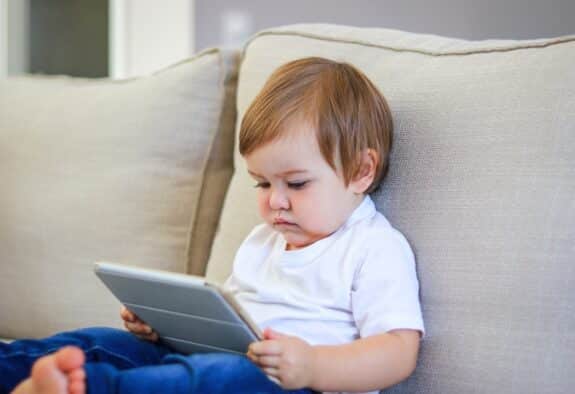The rise in tablet use among toddlers is a growing trend, fueled by the availability of child-friendly apps and the convenience they offer busy parents. However, this increasing reliance on digital devices raises concerns about the potential impact on young children’s emotional development. Recent research suggests that using tablets as “e-babysitters” may lead to more frequent tantrums in toddlers, which can create a cycle where parents, in an attempt to soothe their child, hand over the tablet again—further adding to the problem.
The study, led by Caroline Fitzpatrick, a professor of education at the University of Sherbrooke in Quebec, highlights that early childhood is a important time for developing emotional regulation skills. While it’s normal for babies to cry and scream, as they grow into toddlers and young children, they typically learn to manage anger and frustration. This learning process, however, requires active parental guidance.
According to Fitzpatrick’s research, toddlers learn to regulate their emotions in two ways: through direct coaching from parents during emotional outbursts and by observing how adults handle their own emotions. Increasingly, though, toddlers are turning to screens instead of interacting with their parents.
A U.S. survey found that most 4-year-olds now own their own mobile device, and the average screen time for young children has surged, particularly during the pandemic—from 5 minutes per day in 2020 to nearly an hour by 2022. This uptick in screen time is linked to an increase in emotional outbursts among toddlers, creating a concerning cycle.
Fitzpatrick’s team conducted a study with 315 parents in Nova Scotia, tracking their children’s screen use and emotional regulation from ages 3.5 to 5.5 years. They discovered that just one extra hour of screen time per day at age 3.5 was associated with a significant rise in anger and frustration levels by age 4.5. These heightened emotions were then linked to an increase in tablet use by age 5.5.
The researchers concluded that early childhood tablet use might contribute to a harmful cycle that disrupts emotional regulation. They noted that children who struggle with emotional regulation tend to be exposed to more screen time, as parents often use digital devices to calm their children.
Dr. Scott Krakower, a child psychiatrist at Northwell Zucker Hillside Hospital in New York, emphasized the importance of moderation. He advised setting clear limits on screen time, suggesting brief, structured periods of tablet use followed by breaks. The research team also pointed out that their study didn’t track whether parents were actively engaged with their children during screen time, which could potentially mitigate some negative effects.
Ultimately, one-on-one interaction between parents and children remains the best way to support a toddler’s emotional development.
More Parenting News:







